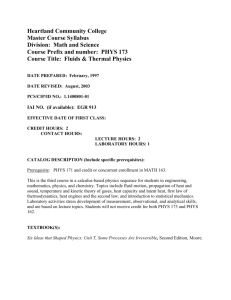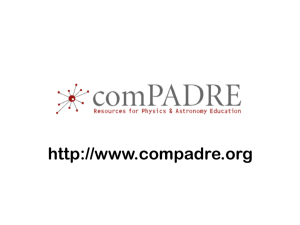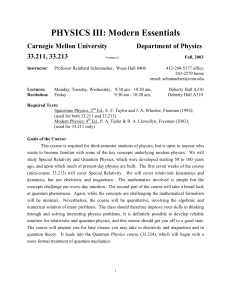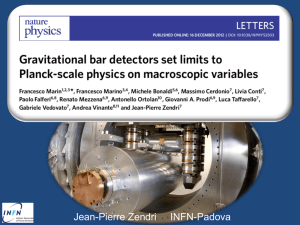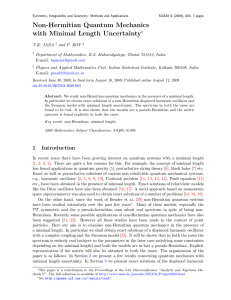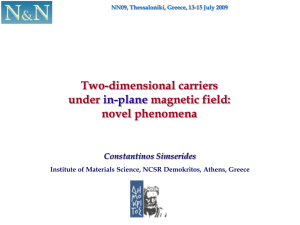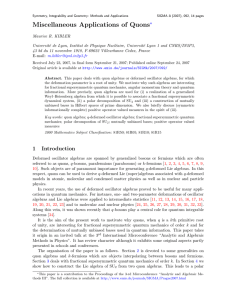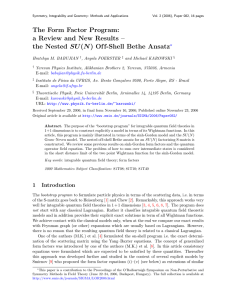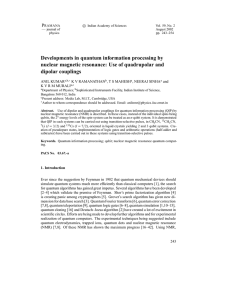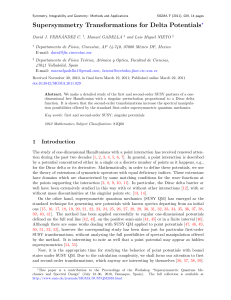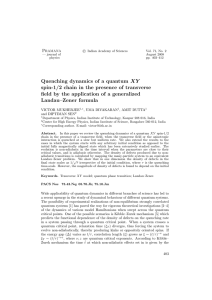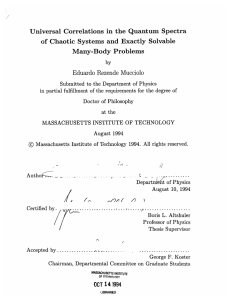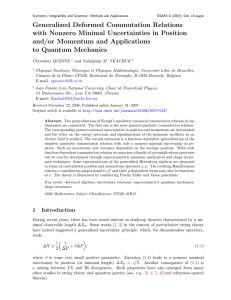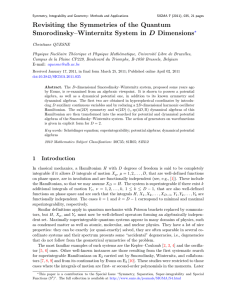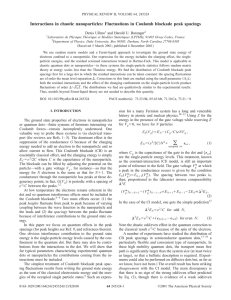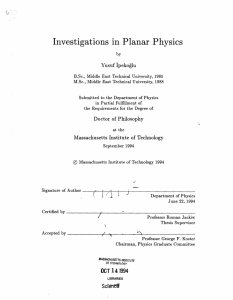Physics 356 – Quantum Physics II Spring 2006
advertisement
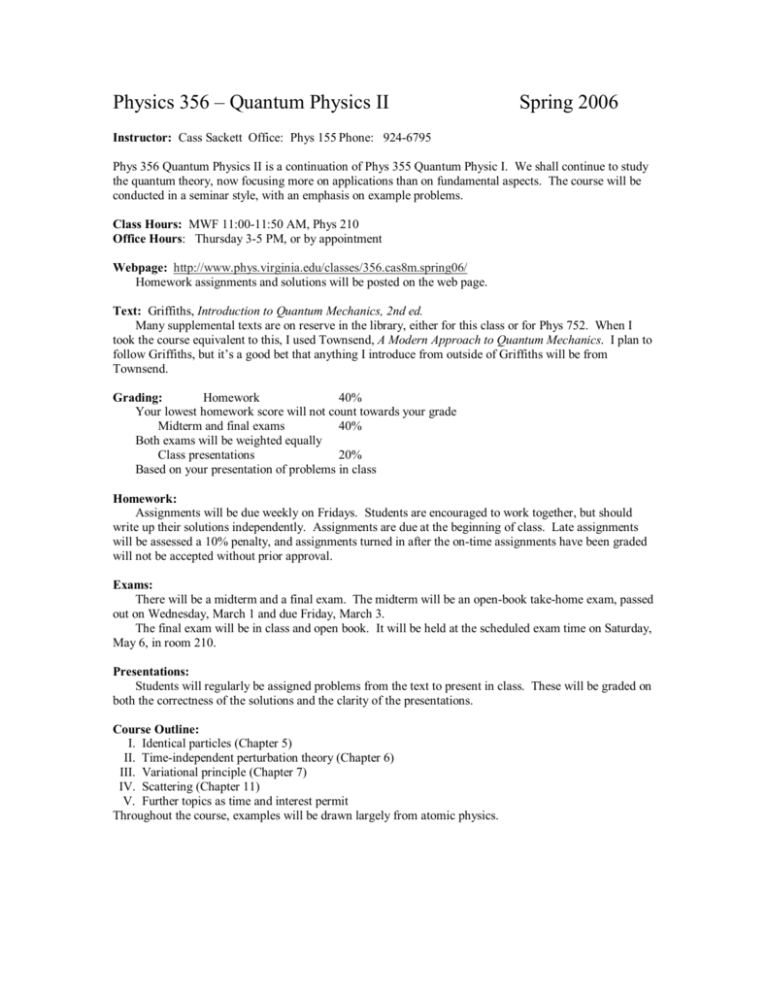
Physics 356 – Quantum Physics II Spring 2006 Instructor: Cass Sackett Office: Phys 155 Phone: 924-6795 Phys 356 Quantum Physics II is a continuation of Phys 355 Quantum Physic I. We shall continue to study the quantum theory, now focusing more on applications than on fundamental aspects. The course will be conducted in a seminar style, with an emphasis on example problems. Class Hours: MWF 11:00-11:50 AM, Phys 210 Office Hours: Thursday 3-5 PM, or by appointment Webpage: http://www.phys.virginia.edu/classes/356.cas8m.spring06/ Homework assignments and solutions will be posted on the web page. Text: Griffiths, Introduction to Quantum Mechanics, 2nd ed. Many supplemental texts are on reserve in the library, either for this class or for Phys 752. When I took the course equivalent to this, I used Townsend, A Modern Approach to Quantum Mechanics. I plan to follow Griffiths, but it’s a good bet that anything I introduce from outside of Griffiths will be from Townsend. Grading: Homework 40% Your lowest homework score will not count towards your grade Midterm and final exams 40% Both exams will be weighted equally Class presentations 20% Based on your presentation of problems in class Homework: Assignments will be due weekly on Fridays. Students are encouraged to work together, but should write up their solutions independently. Assignments are due at the beginning of class. Late assignments will be assessed a 10% penalty, and assignments turned in after the on-time assignments have been graded will not be accepted without prior approval. Exams: There will be a midterm and a final exam. The midterm will be an open-book take-home exam, passed out on Wednesday, March 1 and due Friday, March 3. The final exam will be in class and open book. It will be held at the scheduled exam time on Saturday, May 6, in room 210. Presentations: Students will regularly be assigned problems from the text to present in class. These will be graded on both the correctness of the solutions and the clarity of the presentations. Course Outline: I. Identical particles (Chapter 5) II. Time-independent perturbation theory (Chapter 6) III. Variational principle (Chapter 7) IV. Scattering (Chapter 11) V. Further topics as time and interest permit Throughout the course, examples will be drawn largely from atomic physics.
![[1]. In a second set of experiments we made use of an](http://s3.studylib.net/store/data/006848904_1-d28947f67e826ba748445eb0aaff5818-300x300.png)
![Syllabus for PHYS 230 “Advanced Solid State Physics” [Winter 2009]](http://s2.studylib.net/store/data/010899141_1-b3f594788de320e649f180a04717b729-300x300.png)
